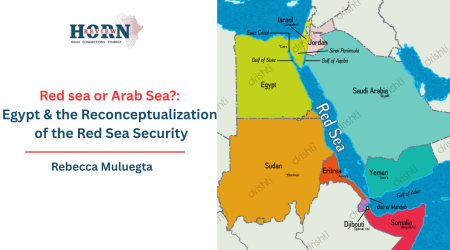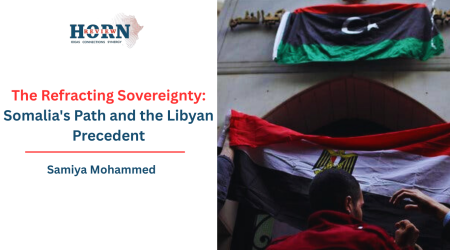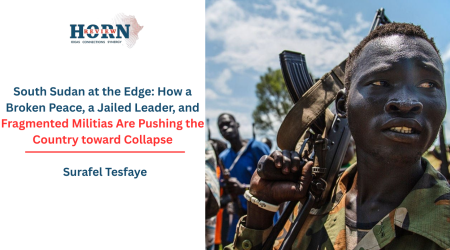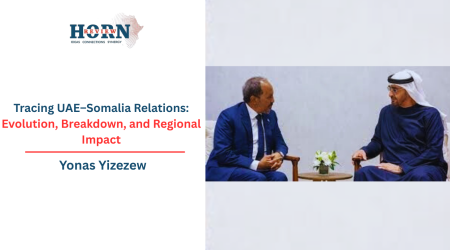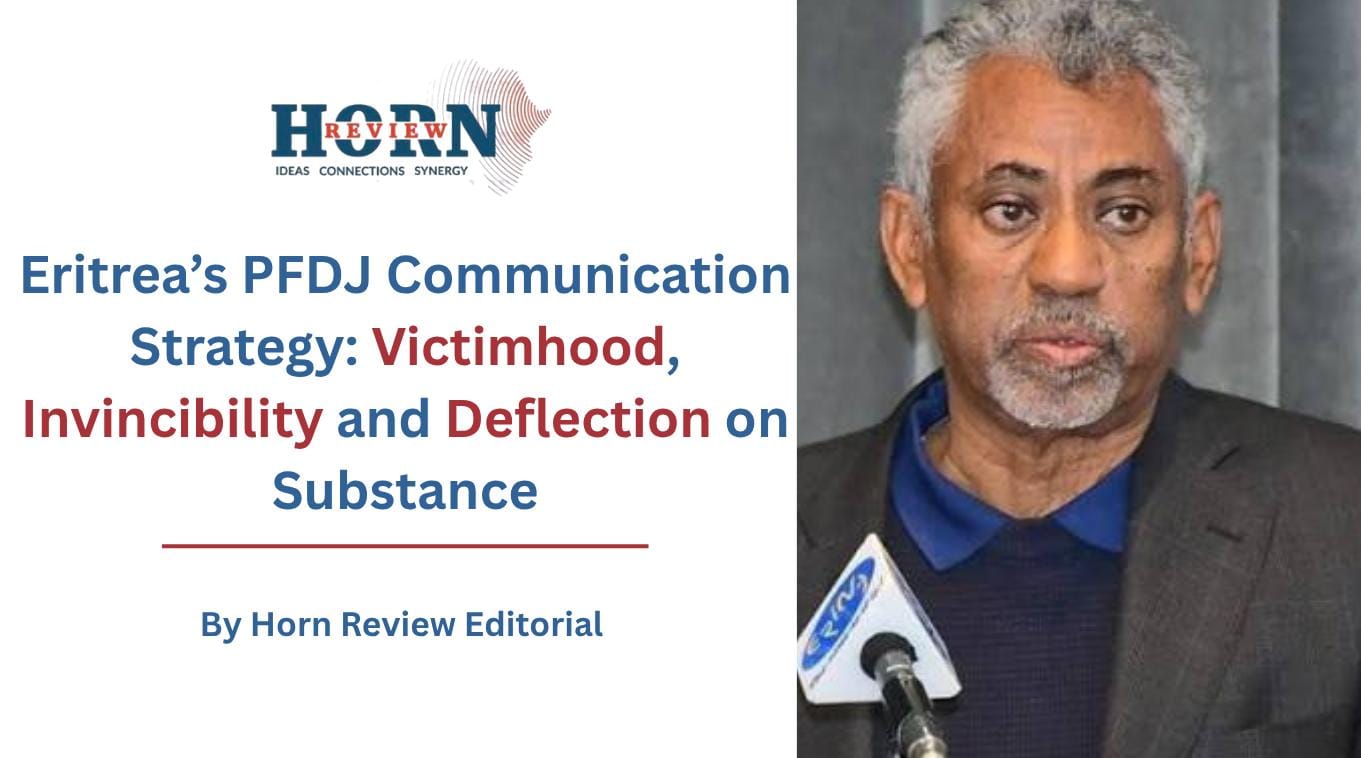
20
Nov
Eritrea’s PFDJ Communication Strategy: Victimhood, Invincibility and Deflection on Substance
Eritrea’s ruling party, the People’s Front for Democracy and Justice (PFDJ), maintains a meticulously orchestrated communication apparatus that spans domestic and international spheres. This system is not merely a channel for broadcasting official statements; it is a carefully engineered mechanism for shaping perception, suppressing dissent, and insulating the regime from scrutiny. Its narratives consistently revolve around victimhood, invincibility, and deflection from substantive issues, with Ethiopia repeatedly cast as the central external adversary, the foil against which Eritrean suffering, endurance, and sovereignty are measured.
The roots of this system reach back to the liberation struggle and the PFDJ’s long-standing conviction that Ethiopia represents a permanent threat to Eritrean sovereignty. This sense of existential vulnerability has shaped the party’s entire approach to information control. When the movement transitioned from a guerrilla organization into a governing authority, it absorbed the media institutions inherited from Ethiopian administration and repurposed them to entrench the same narratives it had relied on during wartime. Instead of fostering pluralism or professionalization, the result was a frozen information landscape, reflected in the stagnation of both media and academic institutions.
The Ministry of Information, more than any other body, embodies this continuity. It does not function as a public-service institution but as an instrument of political discipline, projecting the views and strategic needs of the regime – above all those of President Isaias Afwerki. Its minister, Yemane Gebremeskel, operates within narrow constraints that prevent independent judgment, especially in relation to Ethiopia, toward which the government maintains a structurally hostile posture. The trajectory of his predecessor, Ali Abdu – who fled in 2012 after a rupture with the president, and whose teenage daughter was arrested while attempting to escape – illustrates the risks that define this environment and the impossibility of genuine divergence within the ministry’s ranks.
Although the age of social media might have opened space for alternative voices, this has not materialized. The PFDJ’s system of control extends well beyond Eritrea’s borders and remains firmly embedded within the diaspora. Extensive party cadres and coordinated digital networks dominate online discourse, leaving little room for dissent. Many Eritreans abroad remain silent not out of political indifference but out of fear – fear of losing their nationality, of being barred from returning home, or of exposing their relatives inside the country to retribution. Almost all pro-PFDJ accounts originate in the diaspora, with the exception of the Minister of Information and a handful of state-linked operators. The individuals who run these accounts – often descendants of former ELF and EPLF fighters, or children of the ruling elite – are far removed from the daily hardships experienced under Isaias Afwerki’s authoritarian rule. Yet they play a decisive role in shaping and enforcing the state’s digital narrative, crafting a sanitized vision of Eritrea while delegitimizing critical voices.
A central function of this network is the delegitimization of Isaias Afwerki’s opponents. Critiques are not merely challenged on political grounds but attacked at the level of identity. Opposition figures – whether activists, journalists, or defectors – are routinely portrayed as non-Eritrean, insufficiently Eritrean, or actively anti-Eritrean. Their motives are framed as externally inspired, morally corrupted, or fundamentally alien to Eritrea’s national character. This assault on personal and collective identity serves a strategic function: by stripping opponents of their Eritrean-ness, the regime and its diaspora allies collapse political dissent into treachery, foreclosing any space for legitimate disagreement.
In recent weeks, the PFDJ and its online activists have significantly escalated their disinformation campaign against Ethiopia, closely following President Isaias Afwerki’s visit to Cairo. The timing of this surge is not coincidental: it came shortly after Ethiopian Prime Minister Abiy Ahmed’s address to parliament on October 28, 2025, in which he reaffirmed Ethiopia’s “existential” claim to sovereign access to the Red Sea. Abiy’s speech, widely covered by regional media, called for international mediation and underscored that Ethiopia’s demand for access would not fade.
In response, pro-PFDJ social media networks have amplified an aggressive disinformation campaign, framing Ethiopia’s maritime aspirations as neo-imperial aggression and questioning the legitimacy of Abiy’s historical and legal claims. This coordinated digital mobilization strengthens the victimhood narrative, portraying Eritrea as under renewed threat, while painting Ethiopia as an unabashed expansionist force.
Victimhood continues to dominate both domestic and international messaging. Within Eritrea, the country is portrayed as under perpetual assault from external powers, with Ethiopia serving as the central antagonist around which narratives of siege are constructed. Historical grievances are mobilized to justify prolonged national service, militarized governance, and the suppression of civil liberties. Internationally, the same narrative is adapted to depict Eritrea as unfairly targeted or systematically misunderstood, deflecting attention from internal policy failures. Ethiopia once again becomes the explanatory device through which both domestic hardship and external criticism are framed, allowing the PFDJ to externalize responsibility for repression and stagnation.
Parallel to this, the invincibility narrative constructs an image of Eritrea as uniquely resilient, disciplined, and morally self-sufficient. Domestic messaging invokes the liberation struggle as proof of Eritrea’s exceptional capacity to endure hardship. Ethiopia remains the reference point – an ever-present adversary whose perceived hostility legitimizes Eritrea’s endurance and validates the sacrifices imposed on its population. Internationally, this narrative projects strategic steadiness, portraying Eritrea as a state impervious to diplomatic pressure. The interplay of victimhood and invincibility transforms hardship into a badge of honor while obscuring the regime’s central role in perpetuating it.
Deflection completes the triad of communication strategies. When confronted with criticisms regarding governance, political repression, or economic decline, the PFDJ consistently redirects discussion toward historical grievances, ideological debates, or regional insecurity. International critiques are discredited as biased or ill-informed. A coordinated network of diaspora accounts reinforces this strategy, ensuring that uncomfortable questions are absorbed by broader narratives that shield the regime from accountability.
Within this coordinated architecture, official state channels broadcast authoritative narratives, diaspora actors amplify them, and tactical nodes police the digital space, responding to criticism and maintaining message discipline. Ethiopia remains the gravitational center of these narratives, shaping both domestic perceptions of threat and international interpretations of Eritrea’s political posture. Through this tightly woven apparatus, the PFDJ sustains a communication environment that is continuous, coherent, and impervious to internal challenge – even as ordinary Eritreans continue to bear the weight of authoritarianism.
By Horn Review Editorial




